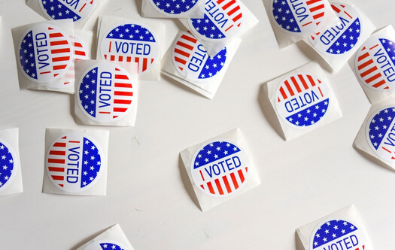Now that the dust has settled from one of the most impactful and tumultuous Super Tuesday weeks in U.S. political history, it’s a good time to take a step back and look at what trends and strategy can be gleaned from the 2020 primary season that nonprofits and socially responsible companies can use.
Support Isn’t For Sale
Billionaire Michael Bloomberg spent a half a billion dollars on slick, glossy, paid advertisements that blanked the airwaves and were sent in high volume to voters in the Super Tuesday states. The campaign even paid California social media influencers $2,500/month to promote Bloomberg on social media. Fellow billionaire Tom Steyer focused his big spending on South Carolina, shelling out more than $17 million on television ads alone. Yet neither effort translated into enough votes to make a difference. As this Five Thirty Eight article pointed out, money spent on paid opportunities like advertising can buy you increased name recognition, but that’s not the same thing as support. Building support for your organization takes an investment of time and effort as well.
Endorsements Matter
The South Carolina primary may be the clearest example ever of what a difference the right endorsement at the right time can make. Before Jim Clyburn endorsed Joe Biden, the former Vice President’s lead in South Carolina was down to single digits. Afterwards, his victory was so decisive that two of his biggest rivals, former Mayor Pete Buttigieg, Sen. Amy Klobuchar, dropped out less than two days later. Identifying who the important people are in your world and putting in the effort to earn their support is time well spent for your organization.
Don’t Avoid Those Who Disagree With You
Few people enjoy confrontation. Talking to people and outlets that line up with your views and values is a more comfortable experience. Yet seeking out those who disagree may have a greater return on investment because doing so forces you to defend your positions and provides a chance to turn critics into believers. The New Hampshire primary was a good example. According to The Wrap, the three candidates who did well in the Granite State – Sen. Bernie Sanders, former Mayor Pete Buttigieg, and Sen. Amy Klobuchar – were interviewed by the conservative leaning Fox News the most. This is important for nonprofits that seek out free media attention. Don’t be afraid to reach out across the proverbial aisle and listen to alternative voices. It could really pay off for your organization by offering a way to gain new supporters.
Each election season has lessons to teach for everyone, no matter what field you work in. There will be many more to come before the general election determines the identity of the presidential candidate who will be inaugurated on January 20, 2021.


